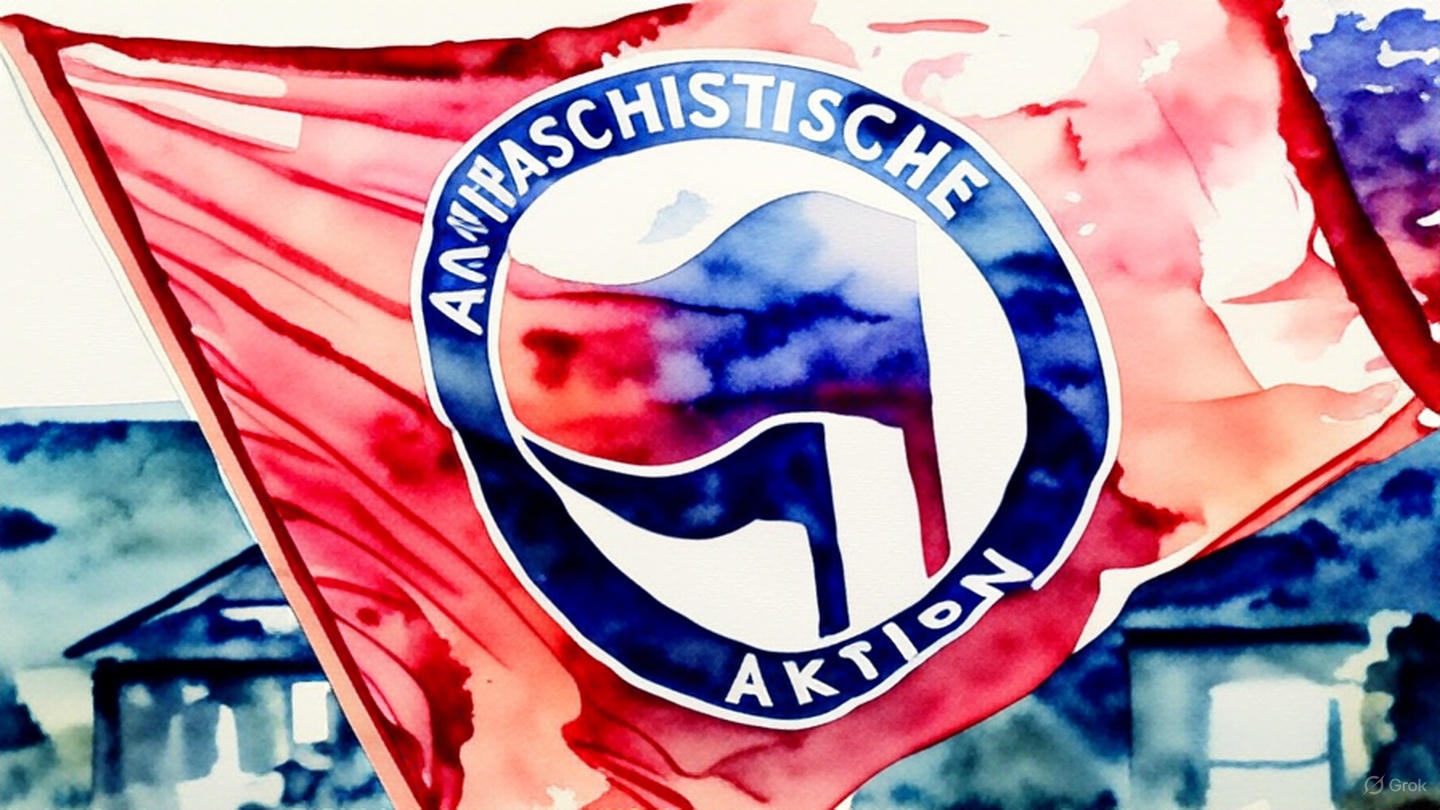International
Trump’s Terror List: US Designates 4 EU Groups (Inc. Italian, German) as Terrorists. Berlin Was Not Informed.

In a move that stirs the already less-than-calm waters of transatlantic relations and domestic US politics, the administration of US President Donald Trump has designated four European left-wing groups as terrorist organizations. This follows through on a vow to crack down on leftists after the assassination of conservative activist Charlie Kirk.
The United States has placed the German group “Antifa Ost” on the official list of terrorist organizations. But it is not alone. Alongside them are an Italian anarchist front and two Greek networks.
This is no small label. These groups now find themselves on the same roster as such names as Hamas, al-Qaeda, and the Shiite militia Hezbollah.
The “interesting” part of the decision regarding “Antifa Ost” is Berlin’s reaction (or lack thereof). It appears the German ally was not informed in advance. “The United States made this decision independently,” stated a spokesperson for the German Foreign Ministry. This was echoed by Sarah Frühauf, a spokesperson for the German Federal Ministry of the Interior: “We generally do not comment on the operational decisions of other countries.”
Translated from diplomatic “bureaucratese language” this sounds like a polite (but perhaps irritated) “that’s your business.”
It must be said that Germany does not take “Antifa Ost” lightly. The network is known for violence, but according to German security authorities, “the potential threat posed by the group has recently diminished considerably.” The reason is simple: the German state has already acted. The leaders and most violent members have been convicted or are in pre-trial detention (for example, for the Budapest incidents and the hammer attacks in Dresden).
Antifa Ost is a terrorist organization based in Germany that is infamous for wielding hammers in premeditated attacks against unsuspecting victims.
This Antifa group was named a terrorist organization by Hungary after it attacked nine victims in Budapest. pic.twitter.com/uszz3beosZ
— Department of State (@StateDept) November 13, 2025
The Other Groups in the Crosshairs: Italy and Greece
As mentioned, the Trump administration targeted a package of 4 entities. Besides the Germans, the designation hits:
- The Informal Anarchist Federation (FAI) or International Revolutionari Front (IFR): An informal Italian anarchist group known for sending parcel bombs in 2003 (including to the then President of the European Commission, Romano Prodi). The FAI group returned to prominence in 2012 for shooting the chief executive of Ansaldo Nucleare in the legs (a tactic known as gambizzazione).
The International Revolutionary Front is an Italy-based coalition of violent anarchists.
The group claimed responsibility for the shooting of an engineering executive in Genoa and sent a series of bombs to politicians, embassies, and civilian targets, injuring several people.
— Department of State (@StateDept) November 13, 2025
-
Greek Networks: Two distinct groups, accused of planting bombs targeting riot police, the labor ministry, and other government and corporate offices.
The Organizational Paradox and the Political Move
The administration’s official justification is that “Anarchist militants have waged terror campaigns… conspiring to undermine the foundations of Western Civilization.”
However, the designation clashes with a technical paradox, which now applies to all four groups. The designation “organization” implies a structure. Yet, both German intelligence and US analysts agree that the Antifa and anarchist galaxy lacks fixed structures and clear hierarchies. The provided text describes them as “loose affiliations of individuals who join up for specific actions.”
Operational differences are also noted: some, like the Italian FAI, have targeted people. One of the Greek groups, meanwhile, reportedly “called ahead” before the detonations to allow for evacuation, suggesting a desire to hit property, not people.
Trump’s move is not a bolt from the blue. It has a precedent in similar designations against Greek far-left groups in the 1970s. But it also fits into a domestic political context: two weeks after the Kirk assassination, Trump signed an executive order designating Antifa as a “domestic terrorist organization” (a move with unclear legal implications) and even directed the Justice Department to investigate ActBlue, the Democratic Party’s main fundraising platform.
The consequences of the new “foreign” designation, however, are crystal clear and concrete:
-
A total ban on entry into the United States.
-
The freezing of all assets under US jurisdiction.
-
Criminal penalties for anyone providing financial or material support to the groups.
Questions and Answers
What does this US decision concretely mean for these 4 groups?
It means that, under US law, they are now equated with members of al-Qaeda. The most immediate consequence is a ban on entering the US and the freezing of any assets (bank accounts, property) located on US soil or controlled by US entities. More importantly, any US citizen or company providing “material support” (even a financial transaction) to the groups is committing a federal crime. It is a legal weapon that completely isolates the groups from the US financial system.
Why did the United States act without informing Germany on the “Antifa Ost” case?
The unilateral action suggests an eminently political move. The Trump administration has often used the “terrorism” designation as a tool for strong media and political impact. It is possible that Washington considers the German response (trials and prison) too “soft” or slow. Acting without consulting Berlin is also a signal of strength: the US asserts its right to define threats to its own security autonomously, even if the threat is based on the territory of a NATO ally.
How can a group be defined as an “organization” if, according to the services themselves, it has no hierarchy?
This is the technical paradox. Intelligence agencies describe these movements as fluid, decentralized networks. However, to apply anti-terrorism laws, the US State Department needs to identify an entity. Evidently, they deemed the “Antifa Ost” or Italian “FAI” nuclei to be cohesive enough in their violent actions to be legally “isolated” as a structured group. It’s an adaptation of the law to an unconventional adversary, focusing more on the actions committed than on formal structure.






